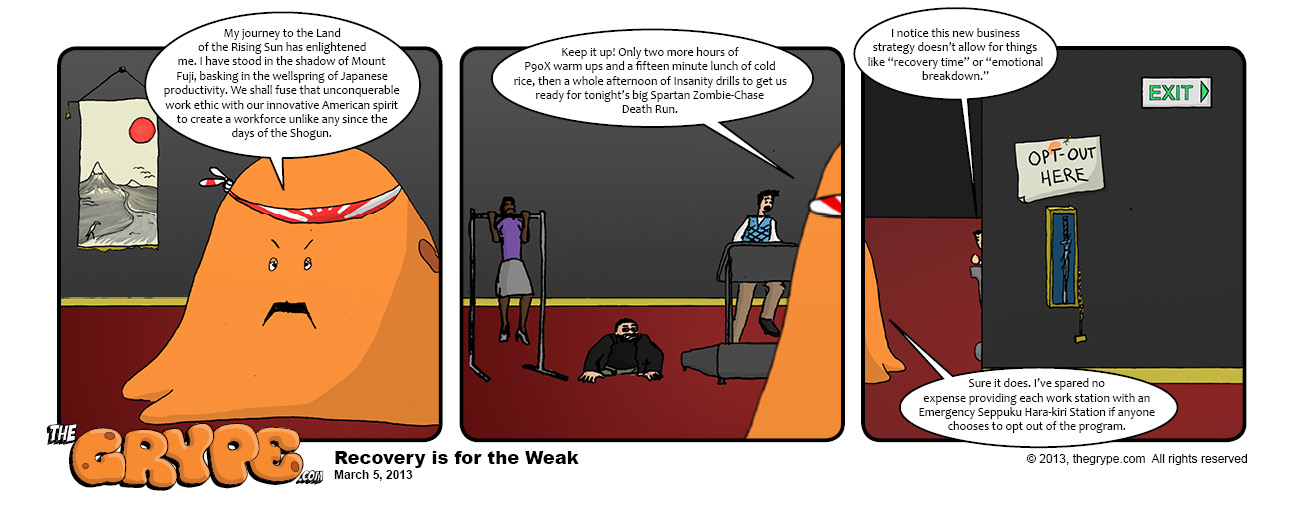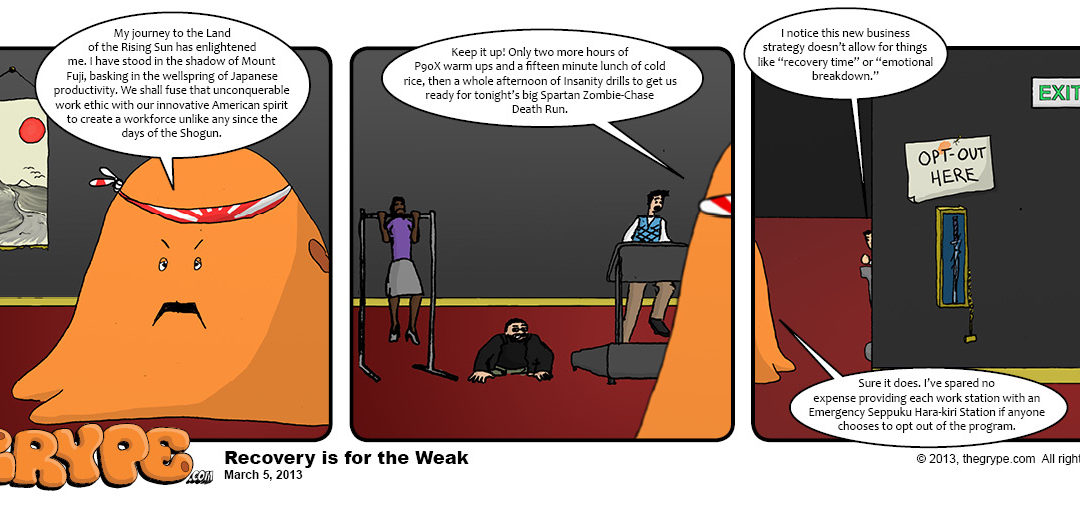 Why are we so adamant about the evils of corporatization gone wild? Here’s why: because amoral corporations make it possible for big money to wipe out and squelch real talent and innovation, through the mercenary, unthinking cash mining of industries by upper management agents on behalf of external shareholders otherwise uninvolved in the nuts and bolts operation of that industry.
Why are we so adamant about the evils of corporatization gone wild? Here’s why: because amoral corporations make it possible for big money to wipe out and squelch real talent and innovation, through the mercenary, unthinking cash mining of industries by upper management agents on behalf of external shareholders otherwise uninvolved in the nuts and bolts operation of that industry.
Such corporate abuse systematically co-opts creativity (or the products of creative acts) to enable uncreative business types to emplace an easily-predictable, endlessly-repeatable system atop specific creative processes, enabling them to be monetized for mass production and sale. It turns art into product at the expense of artists.
Examples: the music industry seeks to co-opt every new alternative type of music (even those that achieved popularity SPECIFICALLY by defying corporate production systems). They then systemize and mass produce it until new popular alternatives emerge outside their control areas. Then the process repeats. But the music isn’t as good, and budding styles and artists get crushed to grease the axles of corporate wheels.
“Quantity” does not equal ability. You can’t always just hire ten minimum wage workers and have them magically do as good a job as one super-smart, talented, 90k-a-year guy. That fact really pisses off Type A micromanager types who like to fire their employees at a whim to maintain an atmosphere of constant tension in the workplace— they always wind up draining their company talent pool, and quality (and profitability) tanks.
Unionization, meanwhile, provides some relief, even though it is based on the shaky premise that “business owners will share profits with workers under duress.” But the power of the bosses grows along with the business itself, until they can squeeze unions out and lock-down wages… and they always go too low. Profit rules. Unions themselves are equally subject to forms of corporatization: when union leadership begins to monetize their collective power over businesses by selling favors and contracts to support the upper echelon of union officers against the best interests of the rank-and-file members, it becomes conspiratorially similar to organized crime… or corporate bribery.
Worse is when government corporatizes itself, as recently happened in Kenya when the 200-or-so members of their parliament essentially redefined themselves as a separate economic social class— “the politician”— marginalizing the role of their respective political parties in favor of becoming a monied, ruling, elite. They simply legislated their own profit by voting to boost their salaries, resulting in laws that would make them the world’s best paid legislators. They were each to be paid $44,000 a year (just for showing up), plus automatic allowances of up to $126,000 or more (each), and an end-of-term severance bonus of $100,000 (cash). Plus diplomatic passports for their whole families, armed protection for life, and state burials for each of them. All this in an impoverished country where most of the population earns less than $1 a day. Who will staunch such greed? Quis custodiet ipsos custodes?
In the US, even though bribery is more or less legitimized by “registered lobbyists,” our politicians are less blatant… but only slightly. Municipal “business incentives” to attract corporate interests are also a legal form of extortion/bribery. It is big business—and the megacorporations that fund it— that greases the palms of industry, while our politicians fight for scraps and tax-payers foot the bill.
The middle class— the Consumer Class— is the engine that fuels the economy. The rich hoard money, the poor have none. Only the middle class supports the poor and keeps the rich rich. They pay the tab for all of it. What a shame they are slowly going away.

